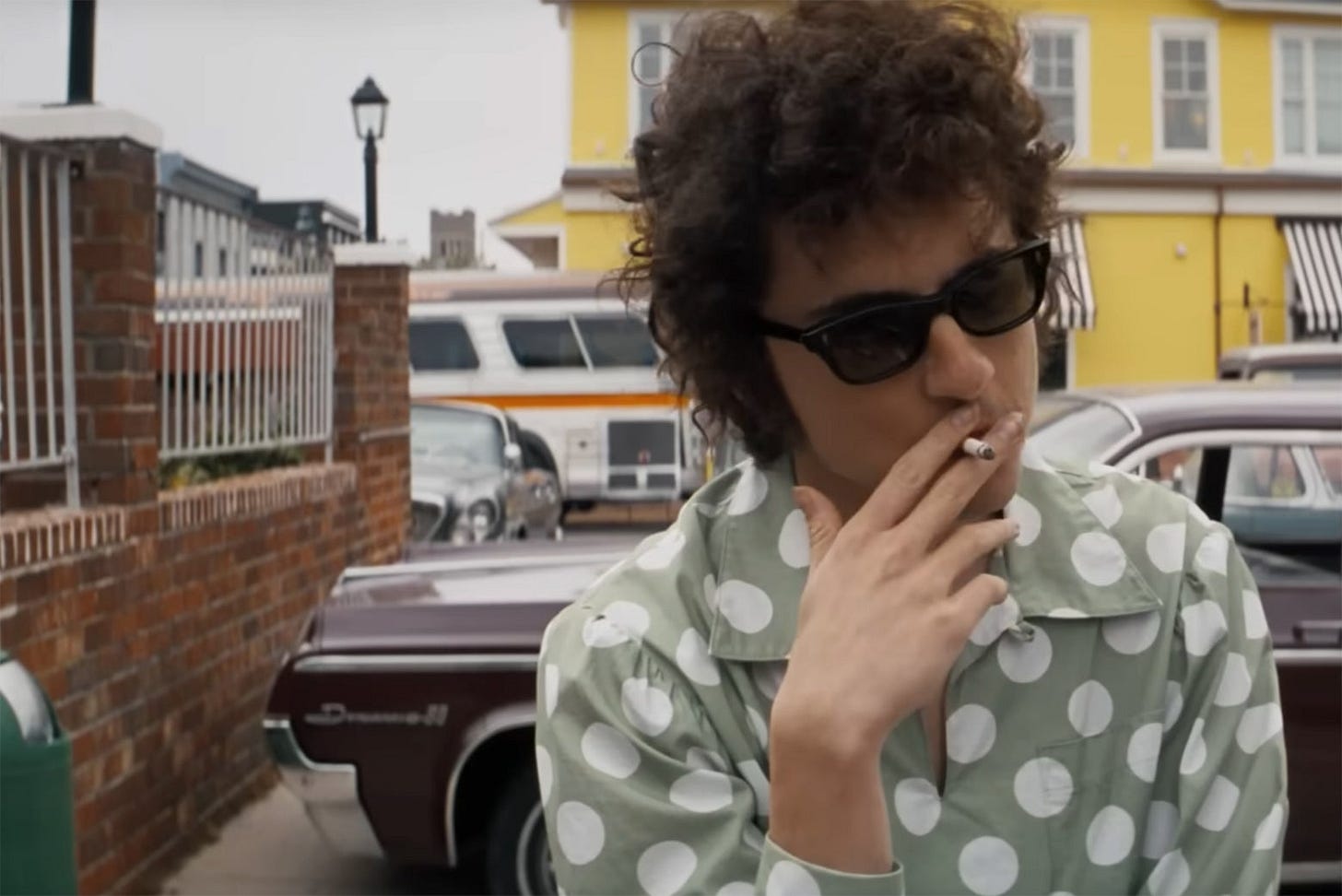The Pump Don't Work Cause the Vandals Broke the Handle
Individuality and the Christian "Vibe Shift"
A Complete Unknown, the new biopic about Bob Dylan, is a good enough piece of filmmaking, but it lacks a soul. A few days after seeing it, I can’t decide if that’s because of the movie itself, or because of the person it depicts. There’s no way for me to know how accurately the film captures what happened with Dylan in the years leading up to that fatef…



